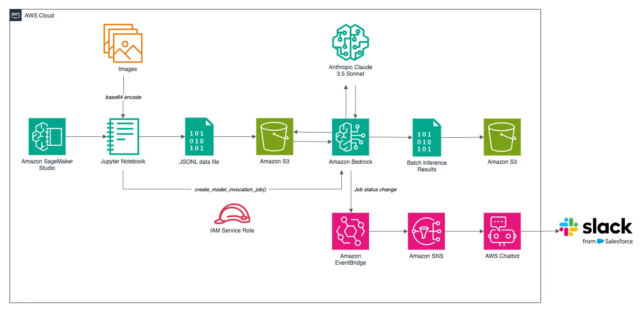Introduction:
The healthcare industry continues to face mounting pressure due to rising administrative burdens, physician burnout, and limited availability of real-time patient support. A prominent multi-specialty hospital system—ranked among the top 10 nationally—partnered with Texple to modernize its medical documentation process and streamline patient engagement.
To address these challenges, Texple implemented Anthropic Claude 2.1, an advanced language model hosted on AWS Bedrock, enabling real-time transcription, automated documentation, intelligent clinical support, and 24/7 patient interaction. The result was a significant reduction in physician workload, improved care delivery, and increased operational efficiency.
Requirements:
-
Eliminate the need for manual medical documentation
-
Support physicians with instant access to clinical guidelines and summaries
-
Enable 24/7 patient engagement through conversational AI
-
Reduce administrative overhead across departments
-
Ensure HIPAA-compliant integration with EHR systems
Challenges:
The client faced several operational and clinical challenges impacting both patient outcomes and internal productivity.
-
Manual documentation overload: Physicians spent hours inputting data into EHRs, cutting into patient care time
-
Physician burnout and low morale: Staff were overburdened with administrative tasks
-
Inconsistent and unstructured records: Manual entries introduced risks of error and compliance issues
-
Delayed patient assistance: Queries went unanswered outside office hours
-
High administrative costs: Significant resources were allocated to staffing transcriptionists and call centers
Solution:
Texple designed and deployed a scalable, secure, and intelligent automation pipeline using Claude 2.1 integrated via AWS Bedrock. The solution was tailored to meet HIPAA standards and seamlessly integrated with the hospital’s existing EHR and engagement platforms.
Approach
Step 1: Automated Medical Documentation
Claude 2.1 was configured to transcribe doctor-patient interactions in real time and convert them into structured, EHR-compatible medical notes.
Example: Doctor input: “Patient is a 58-year-old female with type 2 diabetes, complaining of fatigue. Starting metformin and recommending blood sugar monitoring.”
Claude 2.1 Generated Output:
Step 2: AI-Assisted Clinical Decision Support
Texple trained Claude 2.1 to analyze patient history and clinical data to suggest guideline-based treatments.
For instance, when asked for updated treatment protocols for a diabetic patient with kidney concerns, the AI referred to ADA 2023 guidelines, recommending SGLT2 inhibitors due to renal benefits.
Physicians could now receive rapid clinical insights, improving decision-making and consultation efficiency.
Step 3: Virtual Patient Interaction via AI Chatbots
Texple deployed Claude 2.1-powered virtual assistants across the hospital’s website and mobile app to support patients 24/7. These assistants handled:
-
Appointment scheduling
-
Medication reminders
-
Symptom analysis and triage
-
Basic health inquiries
This reduced the dependency on call center staff while ensuring patients received timely assistance.
Step 4: Intelligent Report Summarization
Long lab and diagnostic reports were condensed by Claude 2.1 into one-paragraph physician-ready summaries.
Example: Input: 12-page cardiac report
Output: “Patient shows elevated cholesterol and moderate arterial plaque buildup. Recommend statin therapy and dietary changes. Schedule follow-up imaging in 6 months.”
Physicians gained more time for patient interaction by avoiding report fatigue.
Business Impact & Measurable Benefits:
Following implementation, the healthcare provider reported substantial improvements:
-
60% reduction in documentation time
-
70% faster medical note turnaround
-
Doctors saved over 10 hours per week
-
24/7 chatbot availability reduced patient wait times
-
50% decrease in administrative overhead related to documentation
-
Improved compliance with HIPAA and audit-readiness
-
Higher patient satisfaction scores due to timely support
Architecture:

Services Implemented
-
AWS Bedrock for model hosting without infrastructure overhead
-
Anthropic Claude 2.1 for transcription, summarization, and conversation
-
Amazon S3 for secure patient data storage
-
AWS Lambda for automating response logic
-
Amazon API Gateway for communication between EHR systems and AI modules
-
Amazon CloudWatch for monitoring performance and logging
Benefits Achieved
-
60% reduction in documentation time
-
70% faster generation of medical notes
-
Over 10 hours saved per doctor, per week
-
24/7 patient assistance without expanding support staff
-
50% decrease in documentation-related administrative overhead
-
Higher compliance with HIPAA and audit-readiness
-
Significant improvement in patient satisfaction
Conclusion:
Texple’s AI-driven healthcare automation using Claude 2.1 on AWS Bedrock enabled physicians to focus on patient care, not paperwork. Through real-time documentation, 24/7 patient support, and smart summarization, hospitals reduced operational costs and improved both staff productivity and patient outcomes.
This case study proves how AI in healthcare is not just innovative—it’s essential. For organizations looking to elevate their care delivery while improving efficiency, Texple provides the expertise to make it happen.
- Client:
- National Healthcare Provider
- Year:
- 2024
- Category:
- Devops
- Location:
- India
- Duration:
- 10 Months
